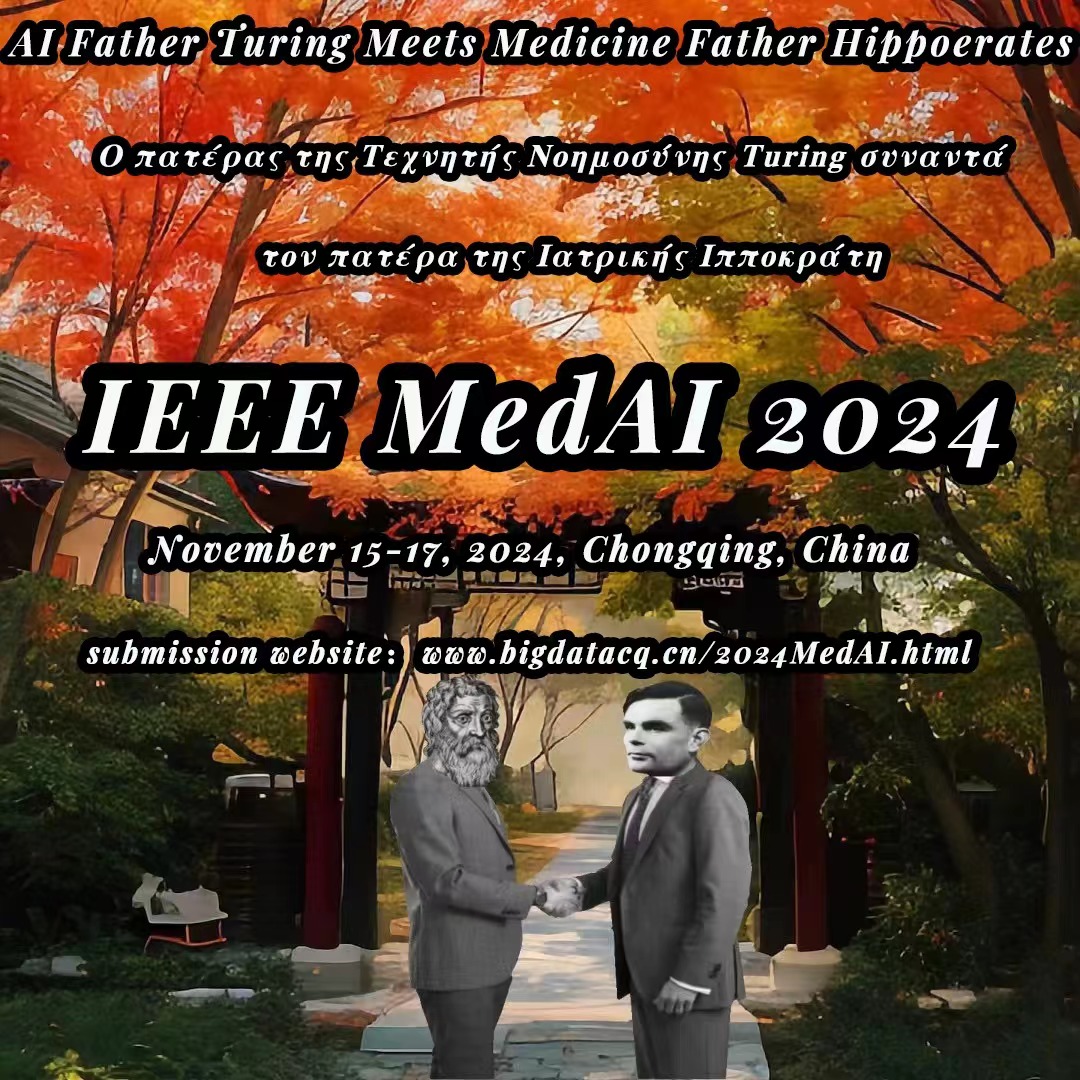Lateset Update
2024.11.26: Latest invitation letter with official staple: [here]
2024.10.01: The invitation letter to conference participants can be downloaded [here].
2024.09.29: We wamly welcome participants without paper submissions to present their work in the form of a POSTER. The posters will be produced by the us, and participants are requested to provide the content using the provided template.[Template1_PPT] [Template2_PSD]
2024.09.27: Dear All:We are pleased to announce that the registration system is now open. All authors and participants are encouraged to complete their registration to attend the event. Here to register
2024.09.03: 1. The deadline for the camera-ready version is Sep. 9, 2024, to upload the camera-ready version files (e.g., PDF, copyright form and source file etc.) by access to this. If you see the CPS shows that the Paper Submission Deadline is Monday, 07 October 2024, you just ignore it. The registration deadline is 15 October 2024.2. About how to pay the registration fee, please keep an eye on the page. We will also notify you by email once the registration system is open.
********************************************************************************************
Medical Artificial Intelligence is a highly specialized interdisciplinary research field that lies at the intersection of artificial intelligence (AI) and medicine. Building upon the success of the inaugural The First IEEE International conference on Medical Artificial Intelligence (MedAI) held in Beijing last year, The Second MedAI is scheduled in Chongqing from November 15th to 17th, 2024.
This prestigious event is expected to gather leading experts, researchers, and professionals in the field to exchange knowledge, present cutting-edge advancements, and foster collaborations in the realm of MedAI. Specifically, the aim of this conference is two-fold: (1) to showcase successful applications of AI techniques in solving challenging biomedical problems, and (2) to foster more extensive and deeper interactions and collaborations between medical researchers and practitioners with challenging medical issues and AI researchers who are eager to identify complex real-life problems for their techniques or to start developing novel algorithms to solve challenging medical issues. Such issues may range from molecular-level challenges, such as diagnostic issues, information extraction, analyses, and modeling from massive medical data, to mining electronic medical records, knowledge-based treatment plan recommendation, and further to robotics to conduct complex surgeries.
We invite original contributions on innovative AI theories and methodologies for medicine, AI-inspired biomedical technologies, and complex biomedical issues that can benefit from AI techniques or may pose new challenges to AI. The interested topics include any crossing between a medicine & healthcare area and an AI area below, but are not limited to the table of related areas.
IEEE Computer Society Open Conference Statement
Equity, Diversity, and Inclusion are central to the goals of the IEEE Computer Society and all of its conferences. Equity at its heart is about removing barriers, biases, and obstacles that impede equal access and opportunity to succeed. Diversity is fundamentally about valuing human differences and recognizing diverse talents. Inclusion is the active engagement of Diversity and Equity.
A goal of the IEEE Computer Society is to foster an environment in which all individuals are entitled to participate in any IEEE Computer Society activity free of discrimination. For this reason, the IEEE Computer Society is firmly committed to team compositions in all sponsored activities, including but not limited to, technical committees, steering committees, conference organizations, standards committees, and ad hoc committees that display Equity, Diversity, and Inclusion.
IEEE Computer Society meetings, conferences and workshops must provide a welcoming, open and safe environment, that embraces the value of every person, regardless of race, color, sex, sexual orientation, gender identity or expression, age, marital status, religion, national origin, ancestry, or disability. All individuals are entitled to participate in any IEEE Computer Society activity free of discrimination, including harassment based on any of the above factors.
IEEE Event Conduct and Safety Statement
IEEE believes that science, technology, and engineering are fundamental human activities, for which openness, international collaboration, and the free flow of talent and ideas are essential. Its meetings, conferences, and other events seek to enable engaging, thought provoking conversations that support IEEE’s core mission of advancing technology for humanity. Accordingly, IEEE is committed to providing a safe, productive, and welcoming environment to all participants, including staff and vendors, at IEEE-related events.
IEEE has no tolerance for discrimination, harassment, or bullying in any form at IEEE- related events. All participants have the right to pursue shared interests without harassment or discrimination in an environment that supports diversity and inclusion. Participants are expected to adhere to these principles and respect the rights of others. IEEE seeks to provide a secure environment at its events. Participants should report any behavior inconsistent with the principles outlined here, to on site staff, security or venue personnel, or to eventconduct@ieee.org.


